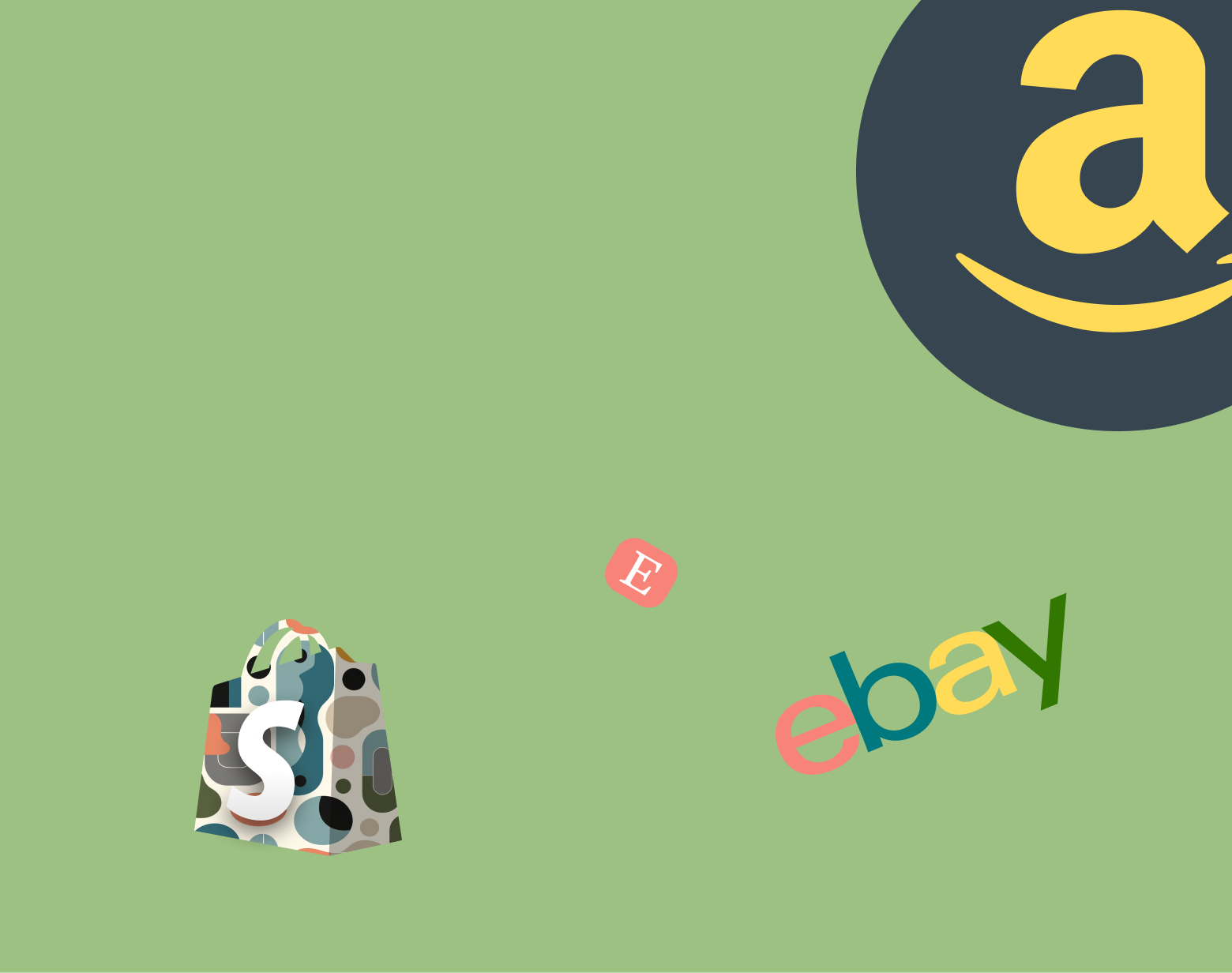Starting your own e-commerce business in the UK is an exciting journey filled with opportunities and challenges. One of the first and most crucial decisions you’ll make is choosing the right e-commerce platform. This choice can significantly impact your business’s success, from initial setup to ongoing sales. Here’s an overview of the main e-commerce platforms available, focusing on how each can serve your needs.
Shopify: Building Your Standalone Store
Shopify is a leading platform (23% market share src) for creating standalone online stores. It offers a user-friendly interface, a wide range of customizable themes, and robust backend support. You have complete control over your store’s design and functionality, allowing you to create a unique brand identity.
Pros:
Cons:
- Ease of Use: Shopify’s intuitive design makes it accessible even for those with limited technical skills.
- Scalability: Shopify can grow with your business, from startup to scale.
- Comprehensive Support: Features for payment processing, inventory management, and streamlined store management
Cons:
- Traffic Generation: While Shopify provides the tools to build a store, it doesn’t drive traffic to your site. You’ll need to invest in marketing efforts to attract visitors.
Shopify charges a subscription fee of £25 per month and 2% + 25p per transaction. Additional fees apply for international cards and transactions.
Expanding Your Reach: Amazon, Etsy, and eBay
Consider supplementing your Shopify store with additional sales channels to boost sales and visibility. Platforms like Amazon, Etsy, and eBay bring substantial traffic that can kickstart your sales.
As of April 2024, the monthly UK visitors for platforms were (src):
As of April 2024, the monthly UK visitors for platforms were (src):
- Amazon 359 mln
- eBay 165 mln
- Etsy 34 mln
Amazon: The eCommerce Giant
With approximately 359 million visitors per month, Amazon is a powerhouse in the e-commerce world. Listing your products on Amazon can expose them to a massive audience, providing a quick and effective way to drive sales.
Pros:
Cons:
Amazon charges a subscription fee of £25 and 7.3-15.3% per transaction for most categories.
- Massive Traffic: Amazon’s vast customer base offers unparalleled exposure.
- Trust Factor: Customers trust Amazon, which can increase your credibility and sales.
- Fulfillment Services: Amazon’s Fulfillment by Amazon (FBA) handles storage, packing, and shipping.
Cons:
- Fees: Amazon charges various fees, including referral and fulfilment fees, which can reduce your margins.
- Competition: High visibility comes with intense competition, requiring strategic pricing and marketing.
Amazon charges a subscription fee of £25 and 7.3-15.3% per transaction for most categories.
eBay: The Auction Specialist
eBay boasts around 165 million visitors per month. It’s a versatile platform suitable for a wide range of products.
Pros:
Cons:
eBay charges $7.95 and $0.3 per additional listing on the Starter plan.
Pros:
- Wide Reach: eBay’s extensive user base provides a broad audience.
- Flexible Selling Options: eBay offers both auction-style and fixed-price sales.
- Global Market: Reach international customers with ease.
Cons:
- Fees: eBay charges insertion and final value fees, which can impact profits.
- Reputation Management: Seller ratings and feedback are critical, requiring consistent attention to customer service.
eBay charges $7.95 and $0.3 per additional listing on the Starter plan.
Etsy: A Niche Marketplace
Etsy attracts around 34 million visitors per month, primarily interested in unique, handmade, or vintage items. Etsy can be a highly effective sales channel if your products fit this niche.
Pros:
Cons:
Etsy charges a $0.4 listing fee, a 6.5% transaction fee and a 3–4.5% + $0.3 payment processing fee.
Pros:
- Targeted Audience: Etsy’s user base is specifically looking for unique and creative products.
- Community Feel: Etsy fosters a community of buyers and sellers, encouraging customer loyalty and repeat business.
Cons:
- Limited Product Types: Etsy’s focus on handmade, vintage, and craft items may not suit all businesses.
Etsy charges a $0.4 listing fee, a 6.5% transaction fee and a 3–4.5% + $0.3 payment processing fee.
Conclusion
Choosing the right e-commerce platform is a strategic decision that can shape the future of your business. Shopify provides a solid foundation for building your brand with a standalone store, but to drive traffic and sales, leveraging additional channels like Amazon, Etsy, and eBay can be invaluable. By understanding the strengths and limitations of each platform, you can create a well-rounded approach that maximizes your reach and optimizes your business potential.

